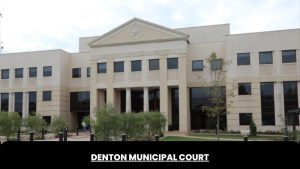What is Circuit Court? Understanding the Basics of the Judicial System
The judicial system plays an important role in every society, and one of the most significant components of the American judicial system is the Circuit Court. Understanding what the Circuit Court is, its functions, and its significance is crucial to anyone interested in learning more about the legal system. In this article, we will explore the basics of the Circuit Court, its role in the judicial system, and its significance to the public.
Introduction
The judicial system in the United States is complex, but it is also vital to ensuring justice and upholding the rule of law. One of the most significant components of the American judicial system is the Circuit Court. This article aims to provide readers with a clear understanding of what the Circuit Court is, its functions, and its significance.
The American Judicial System
Before we dive into what the Circuit Court is, it is essential to have a basic understanding of the American judicial system. The judicial system in the United States is a three-tiered system that consists of federal, state, and local courts. The federal court system is responsible for interpreting the Constitution, while state and local courts handle cases that fall under state and local laws.
What is Circuit Court?
The Circuit Court is a type of court found in both the federal and state court systems. Circuit Courts are often referred to as intermediate appellate courts, meaning they sit between the trial court (where cases are first heard) and the highest court (usually called the Supreme Court). The primary function of the Circuit Court is to hear appeals from lower courts and determine whether the decisions made in those courts were correct.
The Structure of the Circuit Court
The Circuit Court can be found at both the federal and state levels. Below is an overview of the structure of the Circuit Court at both levels:
Federal Circuit Courts
The federal court system is divided into 13 circuits, each of which has a Circuit Court. These courts hear appeals from district courts within their respective circuits. The Circuit Courts also have jurisdiction over certain administrative agencies, such as the Patent and Trademark Office.
State Circuit Courts
In the state court system, Circuit Courts are usually located at the county level. In some states, there are multiple Circuit Courts within a county. Circuit Courts at the state level hear appeals from lower courts within their respective jurisdictions.
The Jurisdiction of the Circuit Court
The Circuit Court has two types of jurisdiction:
Original Jurisdiction
Original jurisdiction refers to a court’s power to hear a case for the first time. In the case of the Circuit Court, it has original jurisdiction over a limited number of cases, such as cases involving foreign diplomats, certain patent disputes, and cases involving interstate disputes. Most cases that come before the Circuit Court are heard on appeal.
Appellate Jurisdiction
The Circuit Court has appellate jurisdiction over cases that have already been heard in lower courts. When a party is dissatisfied with the decision made by a lower court, they can appeal to the Circuit Court. The Circuit Court will then review the case and make a decision on whether the lower court’s decision was correct.
The Role of the Circuit Court in the Judicial System
The Circuit Court plays several roles in the American judicial system. Below are some of its key functions:
Conducting Trials
The Circuit Court can conduct trials in cases where it has original jurisdiction. In such cases, the Circuit Court acts as a trial court, and its decision can be appealed to a higher court.
Interpreting the Law
The Circuit Court is responsible for interpreting the law in cases that come before it. When a case is heard on appeal, the Circuit Court will review the lower court’s decision and interpret the law to determine whether the lower court’s decision was correct.
Setting Legal Precedents
The decisions made by the Circuit Court can set legal precedents that lower courts must follow. These legal precedents can influence future cases and shape the development of the law.
The Significance of the Circuit Court to the Public
The Circuit Court plays a crucial role in protecting individual rights, upholding the Constitution, and maintaining public order. Below are some of the ways in which the Circuit Court is significant to the public:
Protecting Individual Rights
The Circuit Court is responsible for protecting individual rights by ensuring that the law is applied fairly and impartially. When individuals feel that their rights have been violated, they can turn to the Circuit Court for redress.
Upholding the Constitution
The Circuit Court is responsible for upholding the Constitution by interpreting its provisions and ensuring that they are applied in accordance with the law. When a law is challenged on constitutional grounds, the Circuit Court will review the law and determine whether it violates the Constitution.
Maintaining Public Order
The Circuit Court is responsible for maintaining public order by ensuring that the law is enforced and that individuals who violate the law are held accountable for their actions. The decisions made by the Circuit Court can set legal precedents that deter others from engaging in similar behavior.
What does Circuit Court do?
Circuit Courts have a wide range of responsibilities. They hear cases that are appealed from the lower courts, and they also have original jurisdiction over certain types of cases. Some of the cases that Circuit Courts hear include:
- Civil cases involving disputes over contracts, property, or personal injury claims
- Criminal cases involving felonies or other serious offenses
- Appeals from lower courts, such as the District Court
- Cases involving federal law or the United States Constitution
- Cases involving disputes between citizens of different states
Circuit Court vs. District Court
Circuit Courts and District Courts are both part of the federal court system, but they have different responsibilities. District Courts have original jurisdiction over most cases that come before the federal courts. Circuit Courts, on the other hand, hear appeals from the lower courts, including appeals from District Courts.
Circuit Court examples
Some examples of cases that might be heard in Circuit Court include:
- A company that has been sued for breach of contract and is appealing the decision of a lower court
- A person who has been convicted of a federal crime and is appealing their sentence
- A person who believes that their constitutional rights have been violated by a government agency
What is Circuit Court in Tennessee?
In Tennessee, Circuit Courts are trial courts that have general jurisdiction over a wide range of cases. There are 31 judicial districts in the state of Tennessee, and each district has at least one Circuit Court.
What is a Circuit Court judge?
A Circuit Court judge is a judicial officer who presides over cases in the Circuit Court. Circuit Court judges are appointed by the President of the United States and confirmed by the Senate. They serve for life or until they retire.
What is Circuit Court jury duty?
If you are selected for jury duty in Circuit Court, you will be asked to serve as a juror in a trial. Your role as a juror is to listen to the evidence presented in the case and to make a decision based on the facts presented.
Circuit Court of Appeals definition
The Circuit Court of Appeals is a higher court that hears appeals from the Circuit Courts. There are 13 Circuit Courts of Appeals in the United States, each with jurisdiction over a specific geographic region.
Circuit Courts jurisdiction
Circuit Courts have jurisdiction over a wide range of cases, including civil and criminal cases. They also have jurisdiction over appeals from lower courts, such as District Courts.
What is Circuit Court Oregon?
In Oregon, Circuit Courts are the trial courts that have general jurisdiction over a wide range of cases. There are 27 judicial districts in the state of Oregon, and each district has at least one Circuit Court.
Conclusion
In conclusion, the Circuit Court is an essential component of the American judicial system. It plays a crucial role in interpreting the law, setting legal precedents, and protecting individual rights. Understanding the functions and significance of the Circuit Court is essential to anyone interested in learning more about the legal system.
FAQs
What is the difference between Circuit Court and District Court?
The main difference between the Circuit Court and District Court is that the Circuit Court hears appeals from lower courts, while the District Court is a trial court that hears cases for the first time.
Can a Circuit Court judge be impeached?
Yes, Circuit Court judges can be impeached for misconduct or other reasons specified in the Constitution.
What happens in Circuit Court?
In Circuit Court, cases are heard on appeal from lower courts. The Circuit Court will review the lower court’s decision and make a determination on whether the decision was correct.
How are Circuit Court judges appointed?
Circuit Court judges are appointed by the President of the United States and confirmed by the Senate.
Can Circuit Court decisions be overturned?
Yes, Circuit Court decisions can be appealed to a higher court, such as the Supreme Court. If the higher court finds that the Circuit Court’s decision was incorrect it can be overturned.






